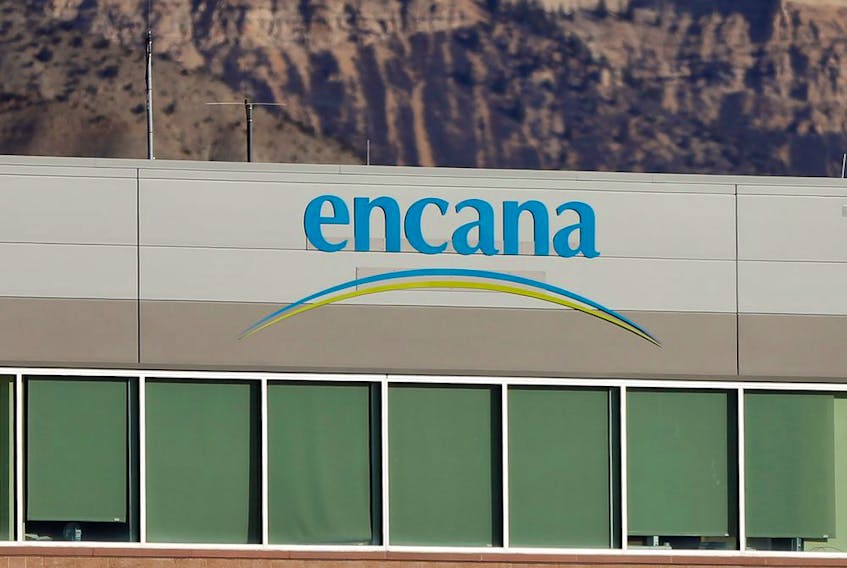Encana Corp.’s decision to move its corporate domicile to the U.S. is a “setback” but is not indicative of a crisis in the Canadian energy sector, one of the country’s top bankers said Friday.
Victor Dodig, president and CEO of CIBC, told reporters following a speech to the Calgary Economic Club that the previous day’s announcement by Encana — in which the company also said it will be dropping the link to Canada in its name, rebranding itself as Ovintiv Inc. — underscores the urgency all Canadians should feel to strengthen, support and grow the country’s energy sector.
“I think every decision where a company chooses to redomicile is a setback for our country,” Dodig said. “But we have an energy industry that’s dynamic, that’s focused on the reduction of GHG emissions, that’s looking to introduce more and more innovative technologies. Let’s get that message out; there are many good things happening.”
Dodig said in spite of current challenges facing the oil and gas sector and the Alberta economy as a whole, he believes the country still has the potential to lead the world in responsible resource development. But he said he is increasingly concerned about the growing polarization across the country on the topics of energy and the environment.
“It feels as though we are competing with ourselves — region versus region, Canadian against Canadian,” he said in his speech.
Dodig said Canada’s future prosperity depends on the Trans Mountain Pipeline expansion being completed and ideally turned over to the private sector as soon as possible.
“I’m hoping a couple of our pension plans will invest in it, private sector investors will invest in it, and a few of our Indigenous nations will invest in it as well,” he said.
He added the federal government must also commit to establishing a regulatory environment that is “apolitical” and that “allows good projects to be built in good time.”
Dodig added the energy industry itself has a role to play through building and advancing its reputation as a responsible global supplier, and said the sector must demonstrate a meaningful commitment to reducing per-barrel greenhouse gas emissions. He pointed to Suncor Energy’s $1.4-billion investment in two natural gas cogeneration units at its oilsands base plant near Fort McMurray and Canadian Natural Resources Ltd.’s carbon capture and storage efforts as two examples of how the use of technology can show international markets that Canada is taking climate change seriously.
Related
“This type of innovation is crucial,” Dodig said. “We know that international investors are increasingly concerned with GHG emissions and environmental sustainability.”
He also suggested that the federal government create a tailored tax credit — similar to one that already exists in the U.S. — for companies that invest in carbon capture and sequestration.
Alex Pourbaix, CEO of Cenovus Energy, introduced Dodig’s speech. In his own remarks, Pourbaix said it is “shameful” that an industry that has been the cornerstone of the Canadian economy has been subjected to “a barrage of attacks.”
“I find myself perplexed at times at how we have arrived at a place where Canadian oil and gas is viewed by many — including some national political leaders — as an embarrassment,” Pourbaix said.
Pourbaix, who on Thursday called Encana’s decision to redomicile in the U.S. “a tragedy for Canada,” said he and other energy industry executives must commit to doing more to combat negative stereotypes — including speaking regularly about the desire to collaborate on climate change and other environmental and social issues.
“Proving a point may make us feel good, but it doesn’t accomplish anything unless we do it in a way that enables others to believe that we are committed to the diversification of the energy industry to include more lower-carbon sources,” Pourbaix said.
On Twitter: @AmandaMsteph
Copyright Postmedia Network Inc., 2019









